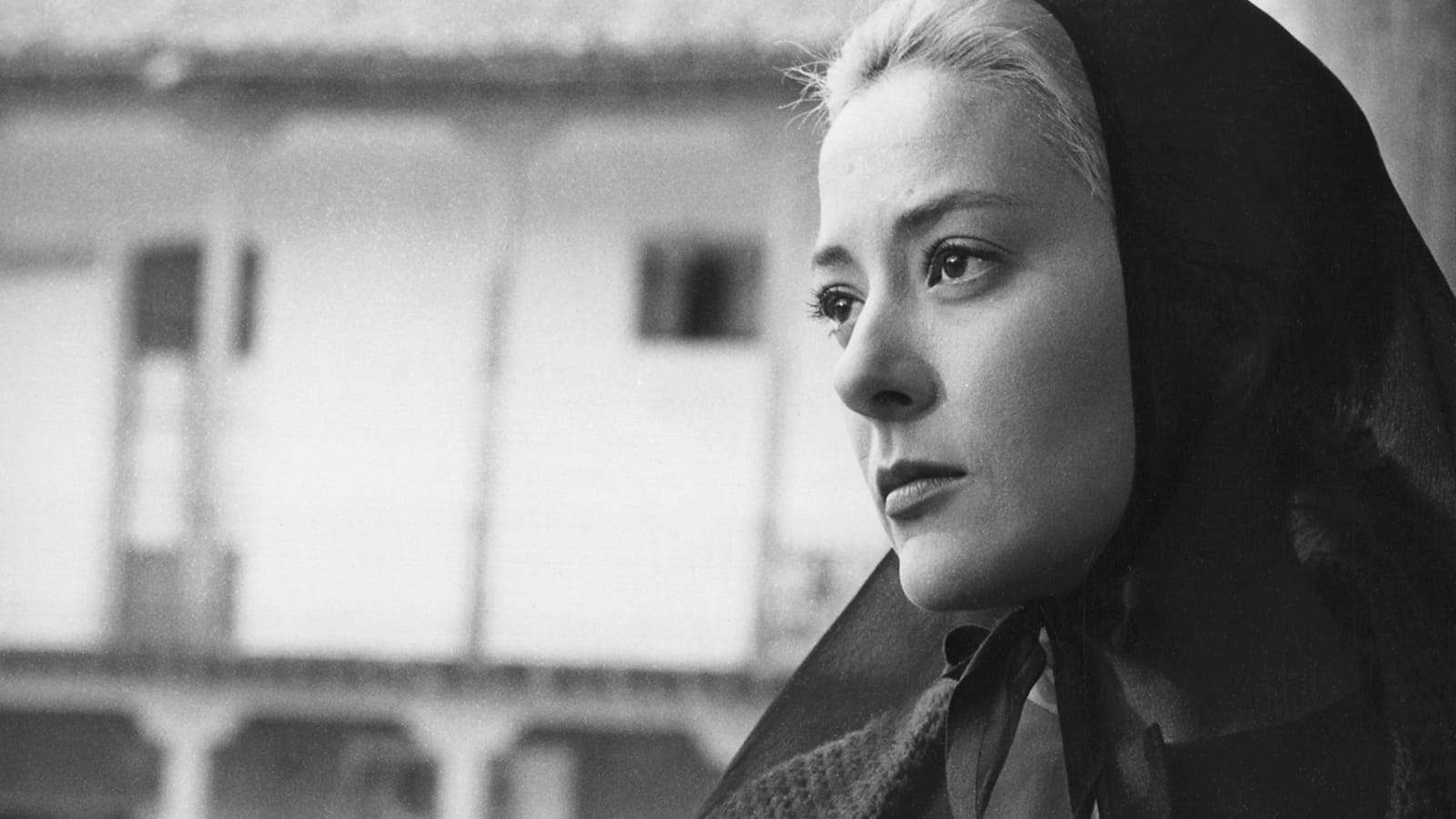Marking Silvia Pinal’s passing, Viridiana remains a fearless critique of church and state, cementing her legacy in cinematic rebellion.
By Rodrigo Garza
Nov 29, 2024
Few films have the nerve to challenge both a dictator and the pope in one go. Also, few performances manage to linger around and have us revisit them decades after the final frame. Silvia Pinal’s Viridiana did both of these. Viridiana was, and still is, a relentless critique of societal hypocrisy, and a true fucking masterpiece. Yesterday, on November 28th Silvia Pinal’s passed away, and we’re reminded of the immense courage she poured into this film, and how her quiet intensity made it unforgettable.
Viridiana’s existence was nothing short of a miracle. When Luis Buñuel unveiled his scathing satire at Cannes in 1961—where it won the Palme d’Or—Franco’s government reacted with pure rage. Spain’s Fascist regime declared the film blasphemous and obscene, ordering all copies burned. The Vatican, good friends of Franco, also condemned , branding it an affront to morality and faith. It was a film the establishment wanted erased.
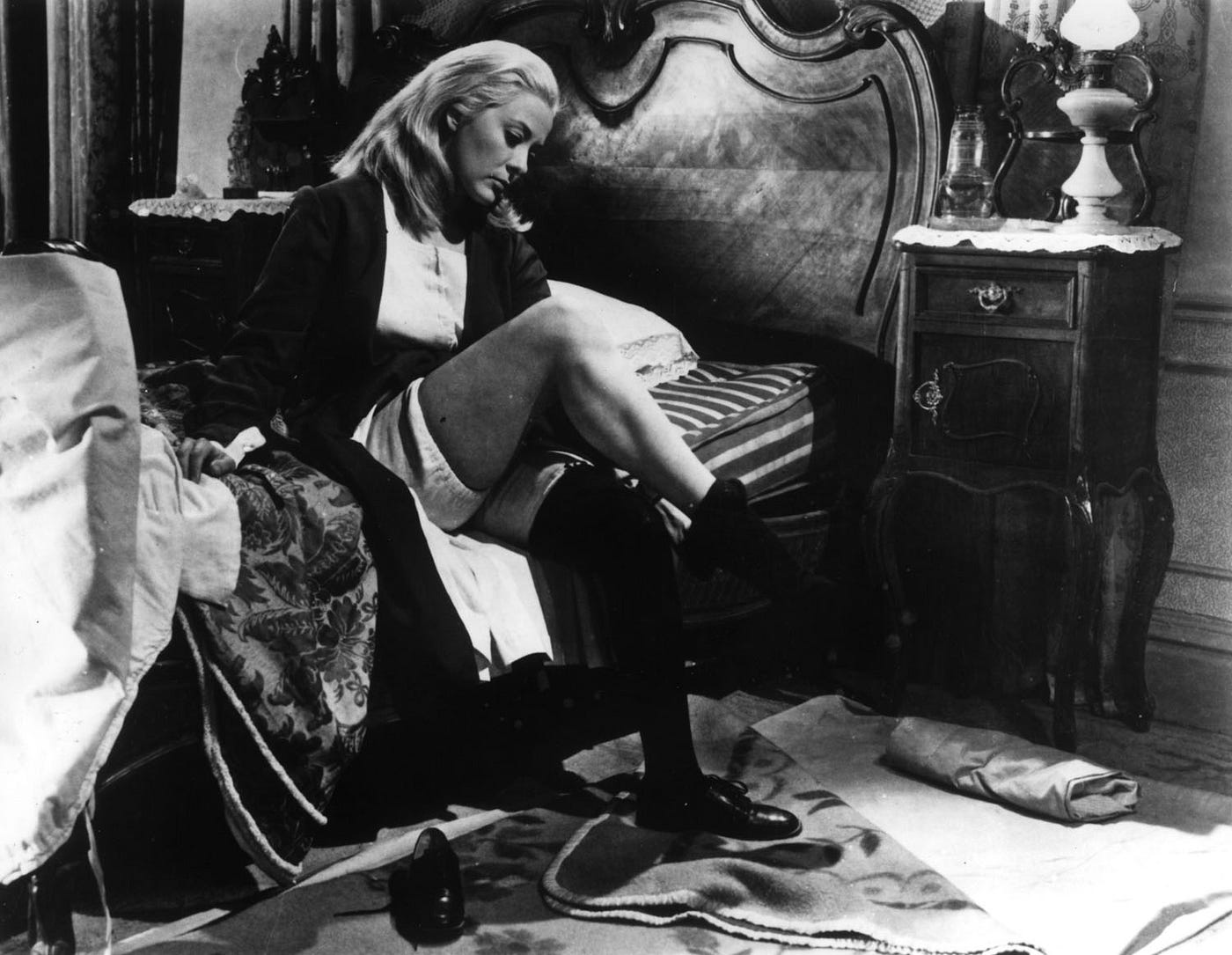
Thank God Silvia Pinal wasn’t one to sit around let that happen. She helped ensure a copy of the film made its way out of Spain, and into Mexico, preserving it from censorship’s reach. Without her, one of cinema’s most provocative works might have been lost forever.
Viridiana dismantles the illusion of moral purity, laying bare the endless shades of grey in the spectrum. Pinal plays a young novice about to take her vows, who, reluctantly, visits her estranged uncle, who paid for her education. What starts as a seemingly noble act spirals into darkness, exposing the rot beneath both familial and religious sanctity, with the uncle asking Viridiana to put on his late wife’s wedding dress, and drugging her in an attempt to rape her, only to repent and hang himself later.
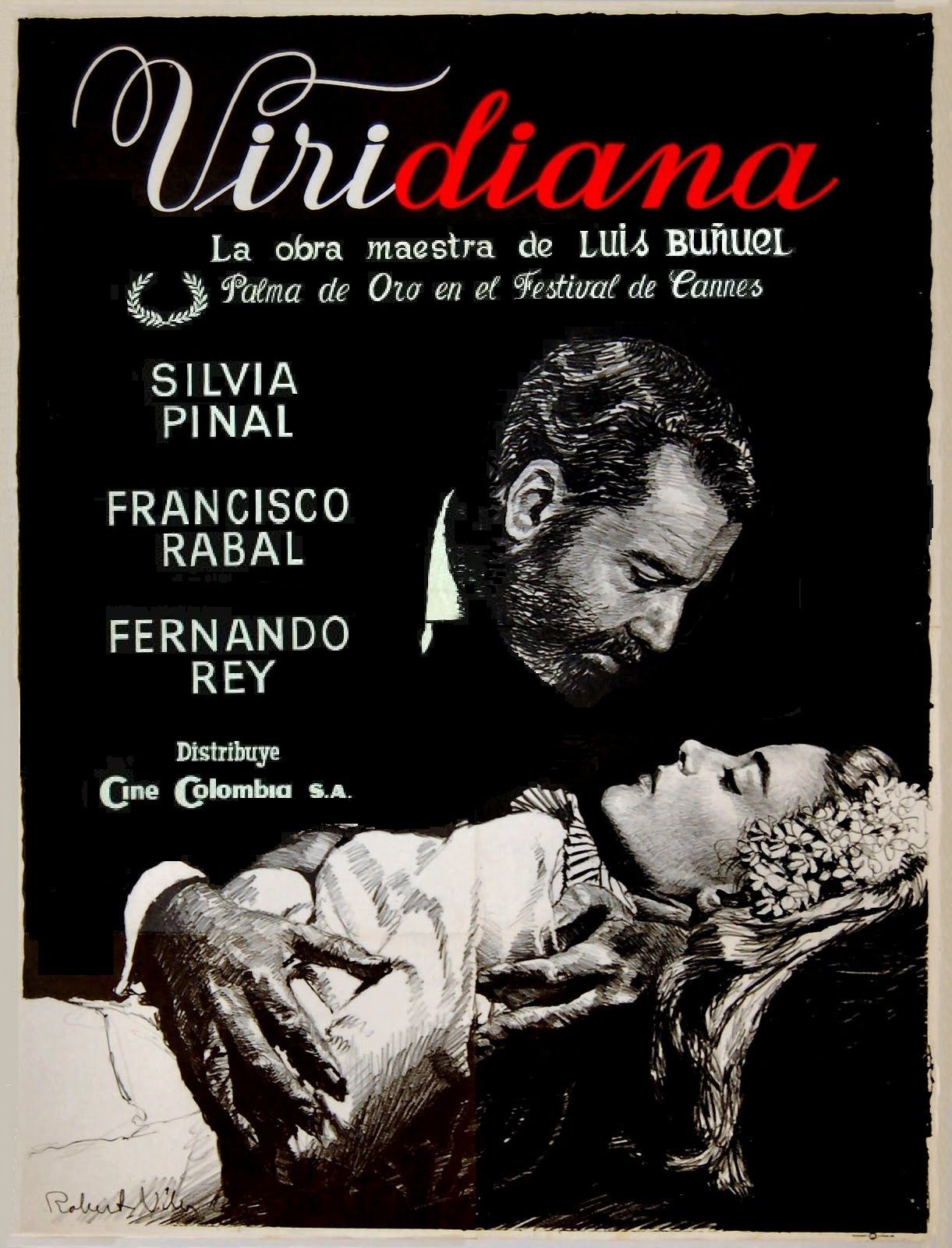
And then, after inheriting the uncles estate, and out of the kindness of her heart, she lets a bunch of beggars live there, this leads to the film’s infamous “Last Supper” scene, in which these “unhoused” as we call them nowadays, grotesquely parody da Vinci’s masterpiece, I’d say, on of the few occasions where the tribute surpasses the original.
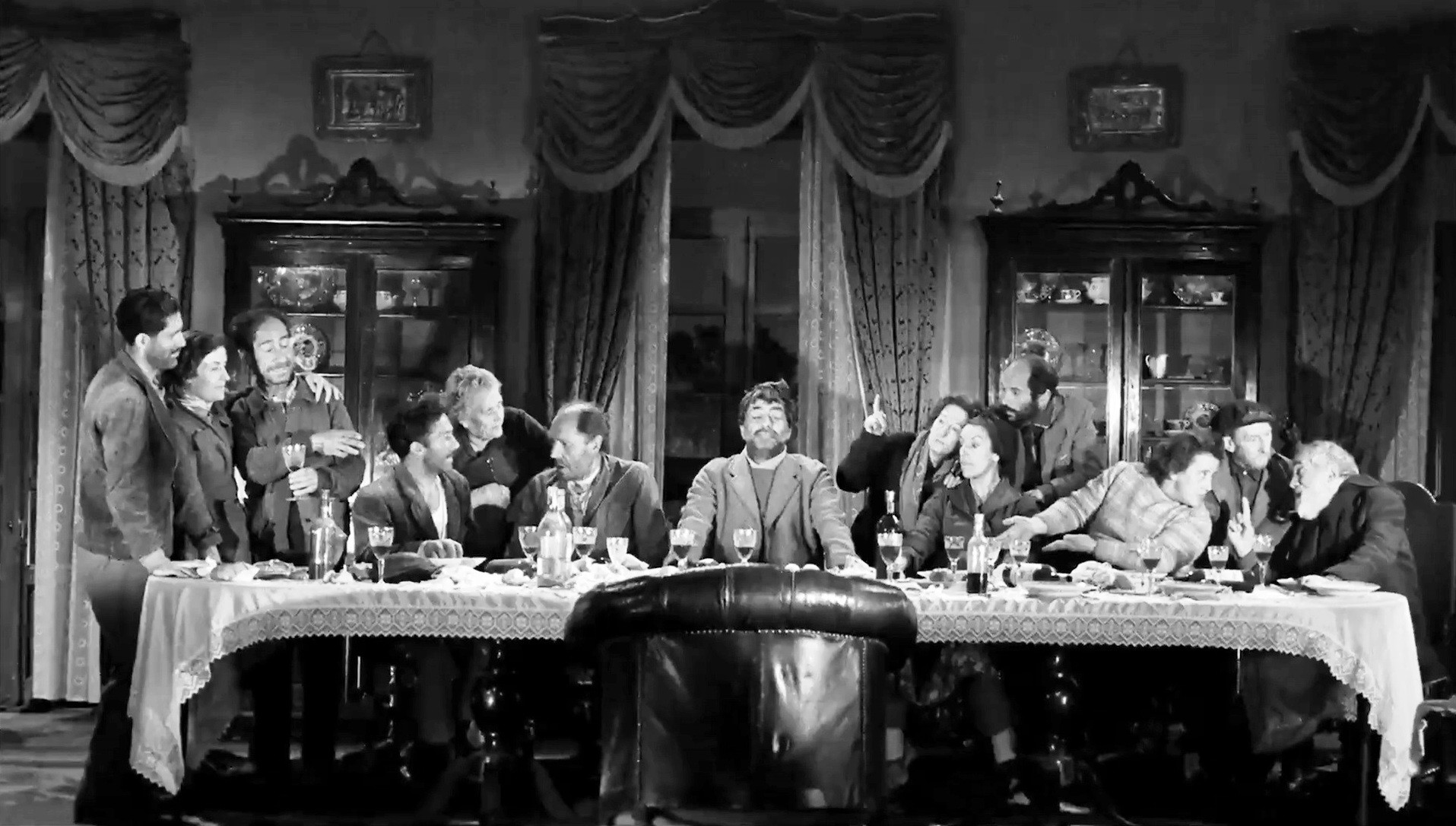
Charity, Buñuel argues, is often an exercise in power—a way to elevate oneself rather than uplift others. Pinal’s presence in this moment is haunting; her character watches helplessly as her vision of goodness collapses into chaos and leading her to almost get raped at knifepoint. Once she’s broken, the film ends with a hint at engaging in a threesome with her cousin and his wife, cementing her forced “corruption”.
Pinal’s performance is the stabilizing force in Viridiana’s chaos. Her portrayal is restrained yet deeply resonant, capturing a woman whose faith is tested and, ultimately, broken. She doesn’t overplay the role; instead, she lets Viridiana’s transformation unfold very subtly, each scene revealing a new layer of vulnerability and resolve.
What makes Pinal’s work so enduring is her ability to ground the film’s staged surrealism in genuine human emotion. Beneath Buñuel’s dark humor and symbolism, her Viridiana feels real—her disillusionment, her hurt, and her fragile hope all resonate with us.
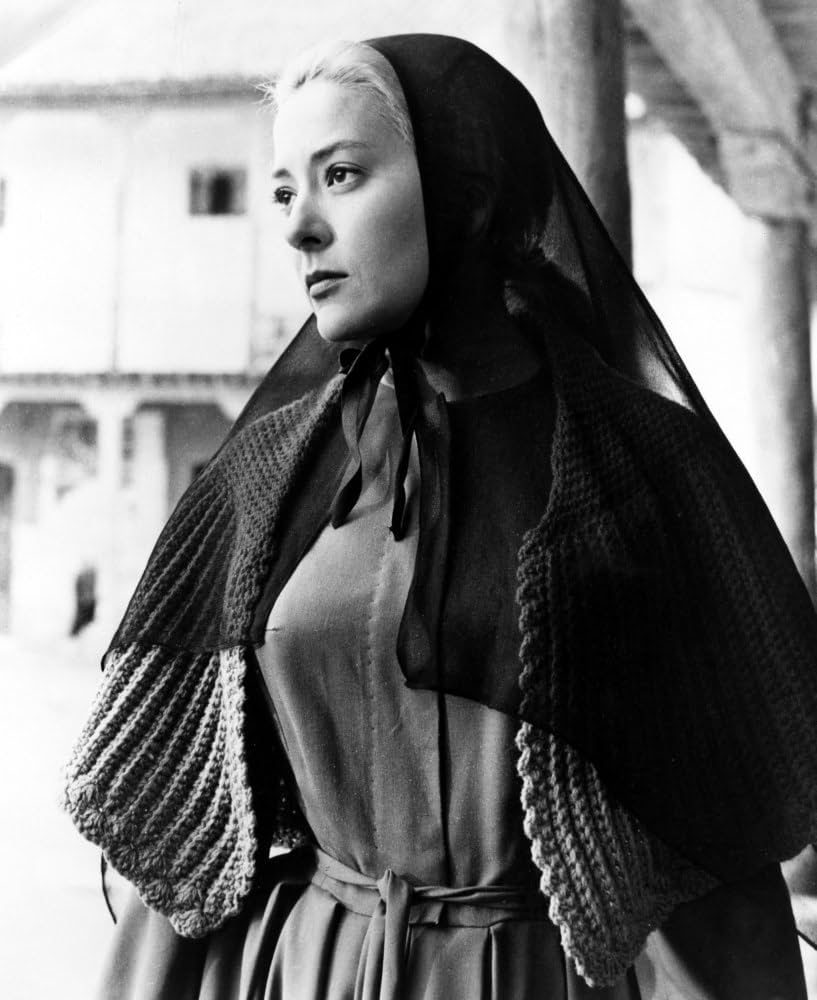
Viridiana’s impact was immediate and incendiary. In Spain, the film’s very existence sparked outrage. Officials lost their positions for allowing its production, and Buñuel faced renewed exile. The Vatican’s condemnation amplified its notoriety, but also ensured it became a must-see for international audiences. The best way to get the kids into something? fucking ban it!
For Pinal, the film solidified her place in cinematic history as collaborator in one of the most daring artistic pieces of the 20th century.and in my opinion one of the best movies out there. Her commitment to Viridiana wasn’t without risk. Aligning herself with Buñuel’s unapologetically critical vision required courage, especially in an era where women in film were often relegated to safer, less confrontational roles.
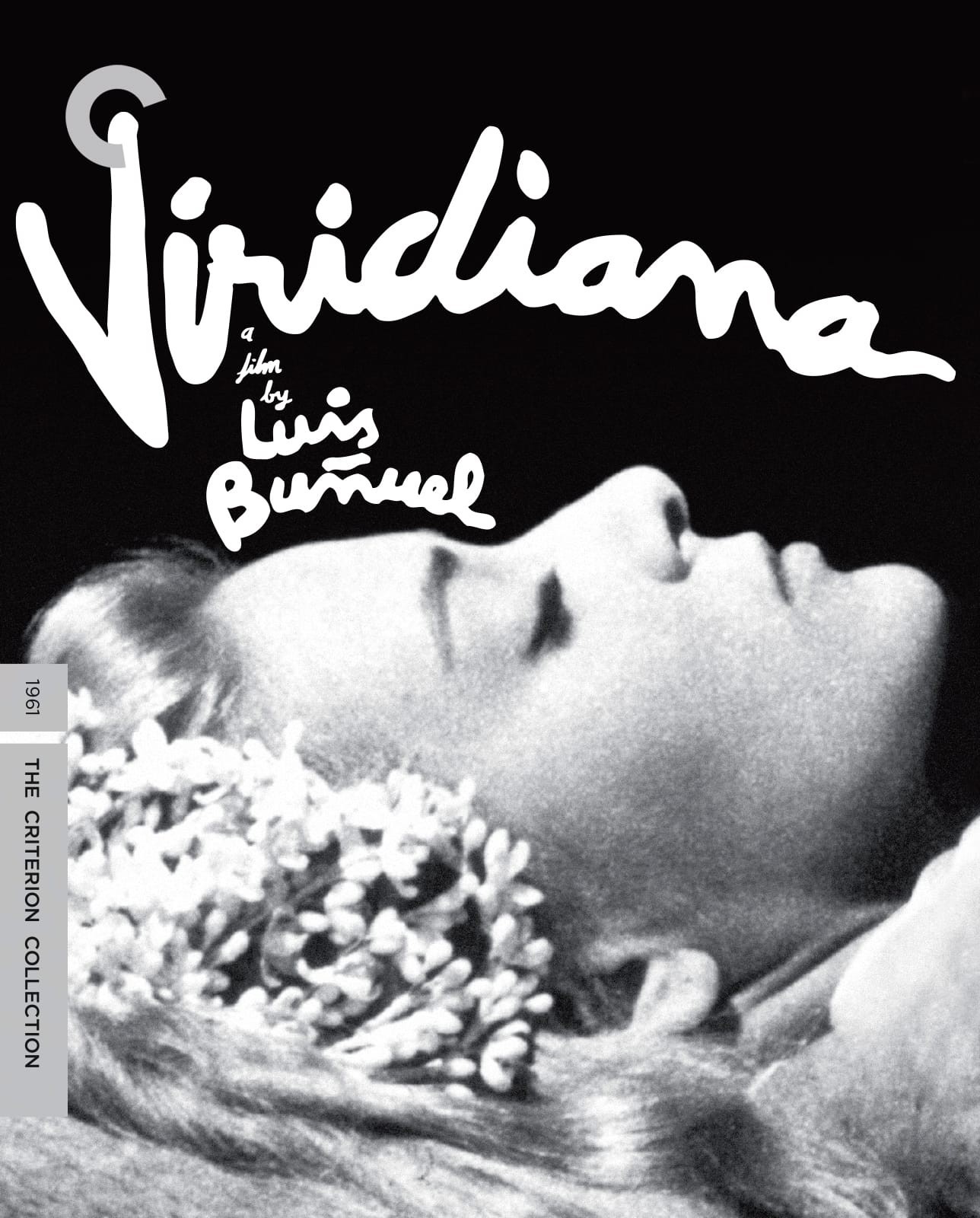
Viridiana remains as potent and challenging today as it was in 1961. Its critique of religious institutions, charity (NGO’s anyone?), and societal norms continues to provoke, reminding audiences that art is at its best when it refuses to placate.
By safeguarding the film against censorship, Pinal ensured its place in history. Her defiance, combined with her indelible performance, speaks to her belief in cinema as a force for truth and transformation.
Silvia Pinal leaves behind a legacy of artistic bravery and unyielding conviction. Through Viridiana, she not only challenged the world’s hypocrisies but also revealed the resilience of human creativity against oppression. Her work reminds us that art doesn’t have to conform—it can confront, disrupt, and endure.
As we honor her life and career, Viridiana stands as a testament to the risks she took and the truths she fought to tell. It is a film that dares us to see the world for what it is and still demand something better—a challenge that Silvia Pinal herself embodied in every frame.
